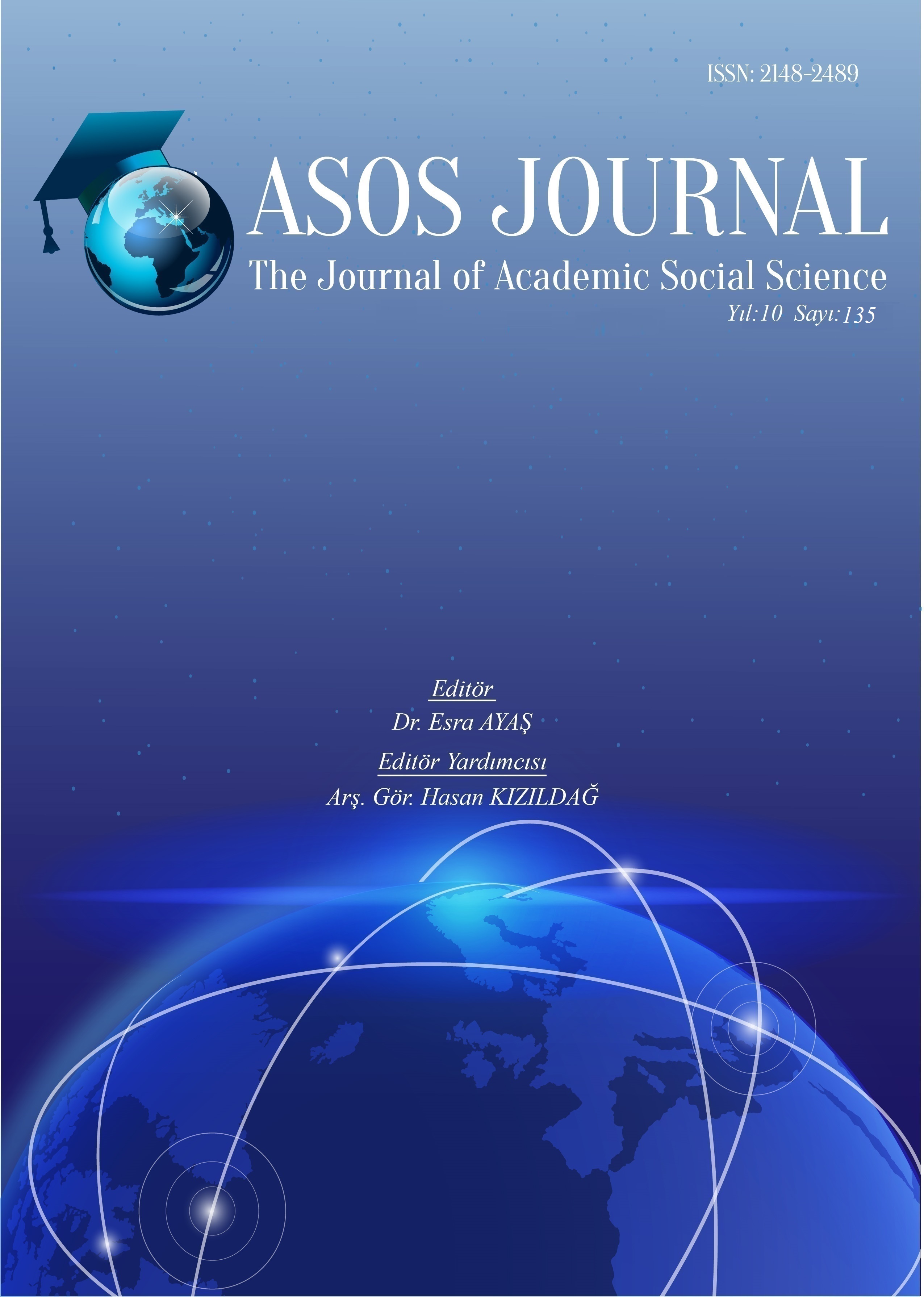ÜNİVERSİTELERİN SPOR İLE İLGİLİ BÖLÜMLERİNDE OKUYAN ÖĞRENCİLE-RİN E- ÖĞRENMEYE YÖNELİK TUTUMLARININ İNCELENMESİ VE AKADEMİK GÜDÜLENME İLİŞKİSİ (KARADENİZ BÖLGESİ ÖRNEĞİ)
Author :
Abstract
Eğitimin her aşamasında uygulama ve teorik anlamda performansın pozitif etkilenmesini sağlamak bireysel olarak kişinin kendisini geliştirmesine katkı sağlayacaktır. Bunun için her koşulda eğitimde devamlılığın olması önemlidir. Bizde, uzaktan ve örgün şekilde yapılan eğitim, öğrencilerin gelişimlerine katkı sağlayıp sağlamadığını, içerisinde bulunduğumuz durum göz önüne alındığında spor bölümünde okuyan öğrencilerin diğer bölümlere göre daha aktif ve uygulama derslerinin fazla olmasından kaynaklı bu tarzda uzaktan eğitim süreçlerinden ne denli etkilendiğini ve akademik anlamda kendilerini ne şekilde motive ettiklerini incelemeyi amaçladık. Çalışmaya, 70 Ordu Üniversitesi, 41 Trabzon Üniversitesi ve 30 Samsun 19 Mayıs Üniversitesinin Beden Eğitimi ve Spor Okulunun Bölümlerinde okuyan toplam 141 öğrenci katılmıştır. Çalışmada, araştırmacı tarafından hazırlanmış kişisel bilgi formu, Bozanoğlu (2004) tarafından hazırlanmış, Akademik Güdülenme Ölçeği, Kisanga (2016) tarafından İngilizce geliştirilmiş olan ölçek Biçer tarafından 2019 yılında Türkçe’ye uyarlanmış, E-Öğrenmeye Yönelik Tutum Ölçeği uygulanmıştır. İstatistiksel analizinde, frekans ile yüzde, tanımlayıcı istatistik ve korelasyon analizi kullanılmıştır. Çalışmanın bulgularında, e-öğrenme tutum düzeyi ve akademik güdülenme puanı ortalamanın üzerinde olduğu tespit edilmiş, belirlenen parametreler açısından pozitif yönlü anlamlı bir ilişki olduğu tespit edilmiştir P<0,05. Sonuç olarak her koşulda karşılaşabileceğimiz uzaktan eğitim süreçlerinde hem sadece teorik ders işleyen hem de uygulama ile teorik dersle birlikte yürütülen bölümlerde akademik güdülenmenin olumsuz etkilenmediği ve motivsyonun devam ettiği bulunmuştur.
Keywords
Abstract
If we positively affect students' theoretical and practical performance at every stage of education, they will have the opportunity to improve themselves. Therefore, education should continue no matter what the circumstances are. This study focused on undergraduate sports students because they ordinarily take more applied courses than students of other departments. This study had three objectives: (1) identifying in what way distance education affected undergraduate sports students, (2) determining whether distance education helped them improve themselves, and (3) ascertaining how they motivated themselves academically during distance education. The sample consisted of 141 students from the Departments of Physical Education and Sports School of Ordu University (n=70), Trabzon University (n=41), and Samsun 19 Mayıs University (n=30). Data were collected using a personal information form developed by the researcher, the Academic Motivation Scale (AMS) developed by Bozanoğlu (2004), and the Test of e-Learning Related Attitudes (TeLRA) scale developed by Kisanga (2016) and adapted to Turkish by Biçer (2019). Frequency and percentage, descriptive statistics, and correlation were used for analysis. Participants had above-average TeLRA and AMS scores. There was a positive correlation between their TeLRA and AMS scores (p<0.05). The results indicate that distance education does not adversely affect the academic motivation of students who take only theoretical courses or those who take both applied and theoretical courses.
Keywords
- Armstrong-Mensah E, Ramsey-White K, Yankey B and Self-Brown S (2020) COVID-19 and Distance Learning: Effects on Georgia State University School of Public Health Students. Front. Public Health, 8:576227. doi: 10.3389/fpubh.2020.576227
- Aslan, Ö. (2016). Öğrenmenin Yeni Yolu: E-Öğrenme. Fırat Üniversitesi Sosyal Bilimler Dergisi, 16(2):121-131.
- Balay, R., Kaya, A., & Çevik, M. N. (2014). Öğretmenlerin İnternete Yönelik Tutumları ve Eğitsel İnternet Kullanım Öz–Yeterlik İnanç Düzeyleri. Karadeniz Uluslararası Bilimsel Dergi, 1(23), 16-31.
- Biçer, H. (2019). E-Öğrenmeye Yönelik Tutum: Ölçek Uyarlama Çalışması. Yayınlanmamış Yüksek Lisans Tezi, Necmettin Erbakan Üniversitesi. Eğitim Bilimleri Enstitüsü. Konya.
- Bozanoğlu, İ. (2004). Akademik Güdülenme Ölçeği: Geliştirilmesi, Geçerliği, Güvenirliği. Ankara Üniversitesi Eğitim Bilimleri Fakültesi Dergisi, 37(2): 83- 98.
- Deniz, A. (2020). Eğitim Fakültesi Öğrencilerinin Öğretmenlik Mesleğine İlişkin Tutum Akademik Öz Yeterlilik ve Akademik Güdülenme Düzeylerinin İncelenmesi (Bir Vakıf Üniversitesi Örneği). Yayınlanmamış Yüksek Lisans Tezi. İstanbul Sebahattin Zaim Üniversitesi Sosyal Bilimler Enstitüsü Eğitim Bilimleri Anabilim Dalı. İstanbul.
- El Seoud, M., Taj Eddin, I., Seddiek, N., El Khouly, M. and Nosseir, A. (2014). E-Learning and Students’ Motivation: A Research Study on the Effect of E-Learning on Higher Education. International Journal of Emerging Technologies in Learning (iJET) · August 2014 DOI: 10.3991/ijet.v9i4.3465.
- Hobson, T.D., ve Puruhito, K.K. (2018). Going the distance: Online course performance and motivation of distance-learning students. Online Learning, 22(4), 129-140. doi:10.24059/olj.v22i4.1516.
- Işık, A. (2009). Perceptıons Of Students And Teachers About The Use Of E - Learnıng / Sharıng Portal In Educatıonal Actıvıtıes. Master’s Thesis. A Thesıs Submıtted To The Graduate School Of Natural And Applıed Scıences Of Mıddle East Technıcal Unıversıty.
- Kantoğlu, B. (2012). E-Öğrenmede Öğrenci Memnuniyeti Ölçümü. Yayınlanmamış Doktora Tezi. Sakarya Üniversitesi Sosyal Bilimler Enstitüsü. Sakarya.
- Küçükosmanoğlu, H. O. (2015). Müzik Öğretmeni Adaylarının Akademik Motivasyon Düzeyerinin Belirlenmesi Üzerine Bir Çalışma (Konya ili Örneği). Sanat Eğitimi Dergisi, 3(1): 1-21.
- Osipov, A.Y., Kudryavtsev, M.D., Galimova, G., Plotnikova, I.I. and Skurıkhına, N.V. (2020). How can Distance Learning be Used in the Physical Education of Students. Revista Romaneasca pentru Educatie Multidimensionala. 12(2Sub1). 77-85.
- Rosenberg, M. J. (2002). E-learning, strategies for delivering knowledge in the digital age. New York: McGraw-Hill.
- Torun, E.D. (2020). Online Distance Learning in Higher Education: E-Learning Readiness as a Predictor of Academic Achievement. Open Praxis, vol. 12 issue 2, April–June 2020, pp. 191–208 (ISSN 2304-070X).
- Zaccoletti S, Camacho A, Correia N, Aguiar C, Mason L, Alves RA and Daniel JR (2020) Parents’ Perceptions of Student Academic Motivation During the COVID-19 Lockdown: A Cross-Country Comparison. Front. Psychol. 11:592670. doi: 10.3389/fpsyg.2020.592670
